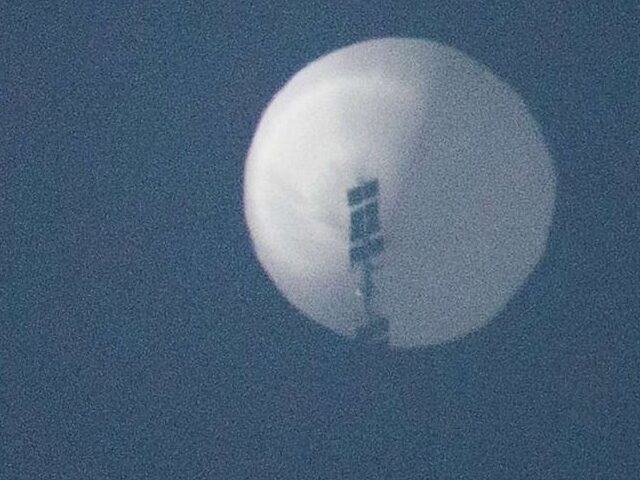The Taiwanese Defense Ministry tracked four Chinese balloons passing over the Taiwan Strait on Monday and Tuesday. Three of the balloons passed over the center of Taiwan Island, coming fairly close to the airbase at Ching Chuan Kang before disappearing.
Taiwan detected several Chinese balloons passing over the Taiwan Strait last month, but none of those balloons flew directly over the island as Tuesday’s flights did.
The Taiwanese Defense Ministry declined an opportunity to state for the record whether it believed the new balloons were surveillance platforms, weather balloons, or something else. The ministry said that it “closely monitors” all objects entering Taiwanese airspace and “appropriately responds” to each incursion.
Defense Ministry spokesman Maj. Gen. Sun Li-fang ventured that the four balloons at least resembled the type of platform employed to collect atmospheric data for meteorologists. It seems unusual for Chinese weather balloons to pass directly over Taiwan, something they have never done before.
The balloon sightings raised concerns in light of the February 2023 debacle in which a Chinese spy balloon flew over the continental United States, apparently gathering intelligence from several military installations. President Joe Biden eventually bowed to mounting public pressure and ridicule and ordered the balloon shot down, but not until after its mission was complete.
NBC News reported in December on an intelligence assessment that found the Chinese spy balloon used an American Internet service provider to send and receive data with its controllers in China.
Security analysts speculated that whether they carried surveillance gear or not, the Chinese balloons might be intended as a “gray zone” pressure tactic ahead of Taiwan’s hotly contested presidential election, which is scheduled for January 13. Gray zone tactics are unsettling and put pressure on Taiwan to respond, but fall short of outright military provocation or acts of war.
Incumbent President Tsai Ing-wen is term-limited, so her Democratic Progressive Party (DPP) is running her vice-president, William Lai, known more commonly in Taiwan as Lai Ching-te.
Lai, who has been the frontrunner through most of the election season, has said he will not change Tsai’s policies toward China. Beijing loathes those policies and has waged diplomatic war against Tsai throughout her tenure. Chinese media refers to Lai as a “separatist,” the same term it used for Tsai.
The Taiwanese opposition passed up an opportunity to create a fusion ticket that might have stood a better chance against Lai. China dramatically stepped up its election interference tactics after the fusion ticket effort collapsed, possibly culminating in the “psychological warfare” of balloon scares, as a military expert told AFP on Wednesday.
Chinese officials told Taiwanese voters to make the “correct choice” on Wednesday, threateningly describing the election as a choice between “peace and war, prosperity and decline.”
Lai predicted on Wednesday that the people of Taiwan would “resist” China’s bullying, but said his party was “very concerned” about China’s “very serious” election interference campaign.
Lai said he has “confidence in the people” because his country has “gone from the dark age of authoritarianism to where it is today.”
“Everyone cherishes Taiwan’s democracy. I have confidence that the people will resist China’s use of various forces to try to influence this election,” he told AFP.

COMMENTS
Please let us know if you're having issues with commenting.